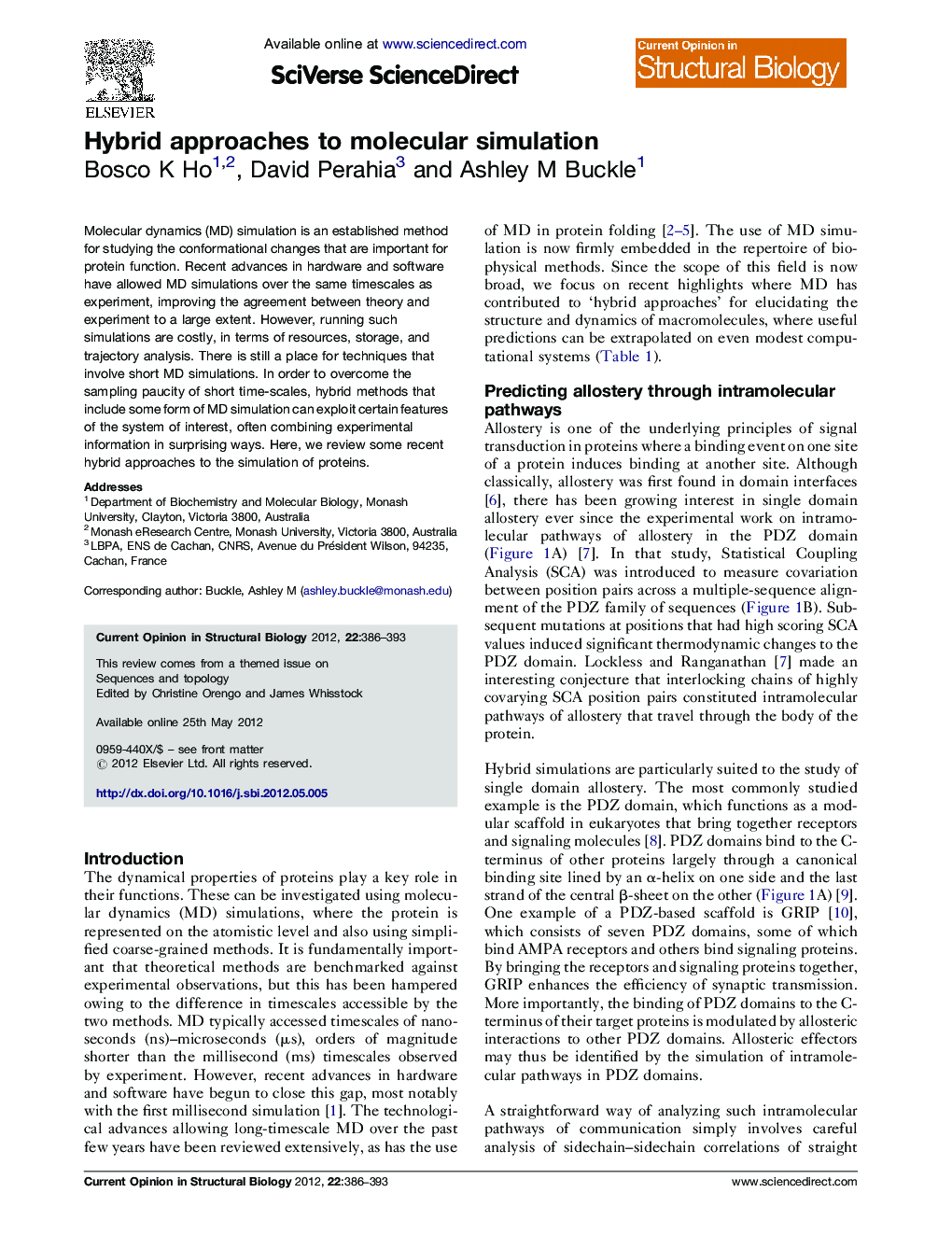| Article ID | Journal | Published Year | Pages | File Type |
|---|---|---|---|---|
| 1979092 | Current Opinion in Structural Biology | 2012 | 8 Pages |
Molecular dynamics (MD) simulation is an established method for studying the conformational changes that are important for protein function. Recent advances in hardware and software have allowed MD simulations over the same timescales as experiment, improving the agreement between theory and experiment to a large extent. However, running such simulations are costly, in terms of resources, storage, and trajectory analysis. There is still a place for techniques that involve short MD simulations. In order to overcome the sampling paucity of short time-scales, hybrid methods that include some form of MD simulation can exploit certain features of the system of interest, often combining experimental information in surprising ways. Here, we review some recent hybrid approaches to the simulation of proteins.
► Recent advances have allowed MD simulations over the same timescales as experiment. ► Such simulations are computationally costly. ► There is still a place for techniques that involve short MD simulations. ► Hybrid methods can exploit certain features of the system of interest, combining experimental information in surprising ways. ► Here, we review some recent hybrid approaches to the simulation of proteins.
